Organise, Educate and Agitate!
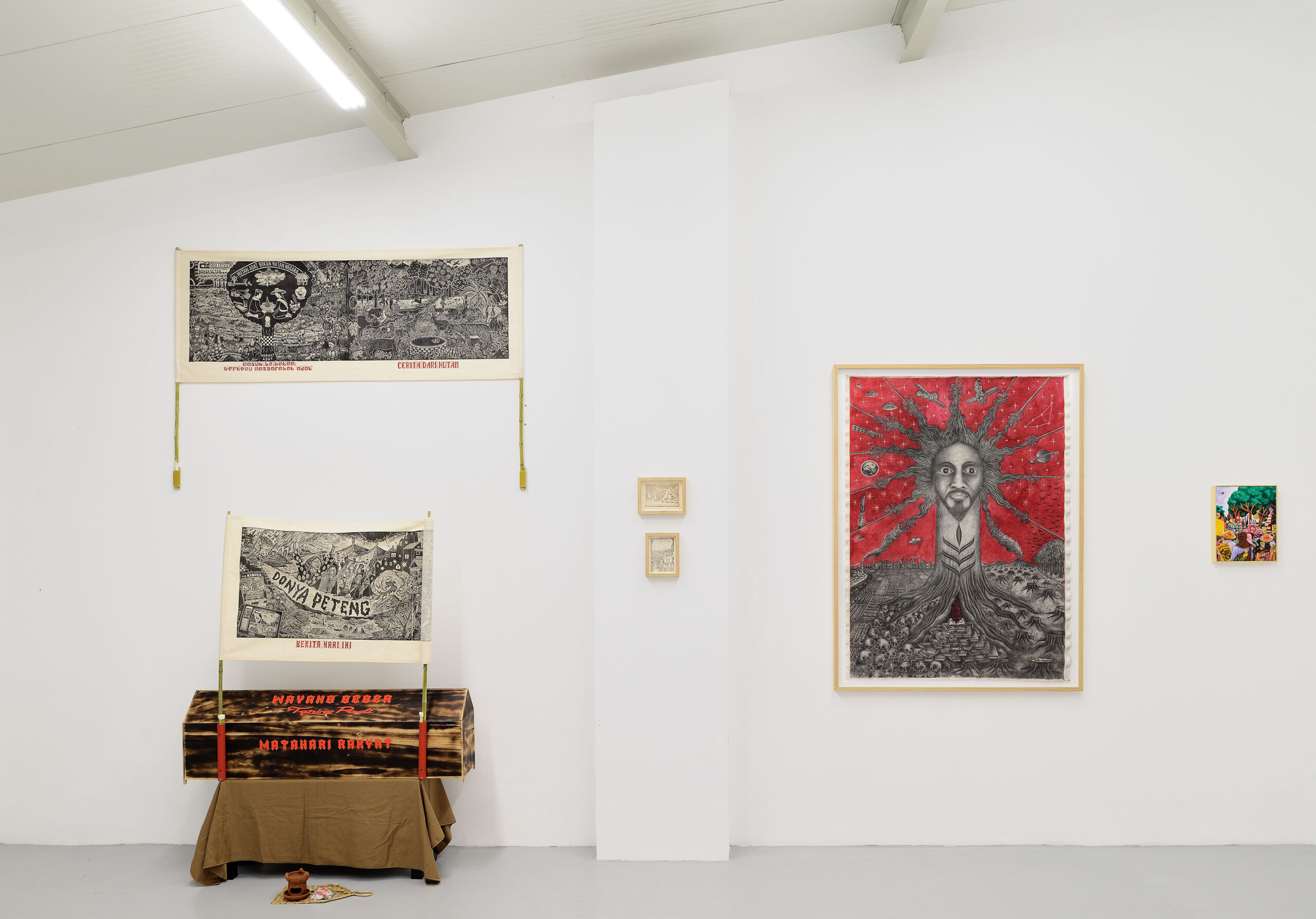
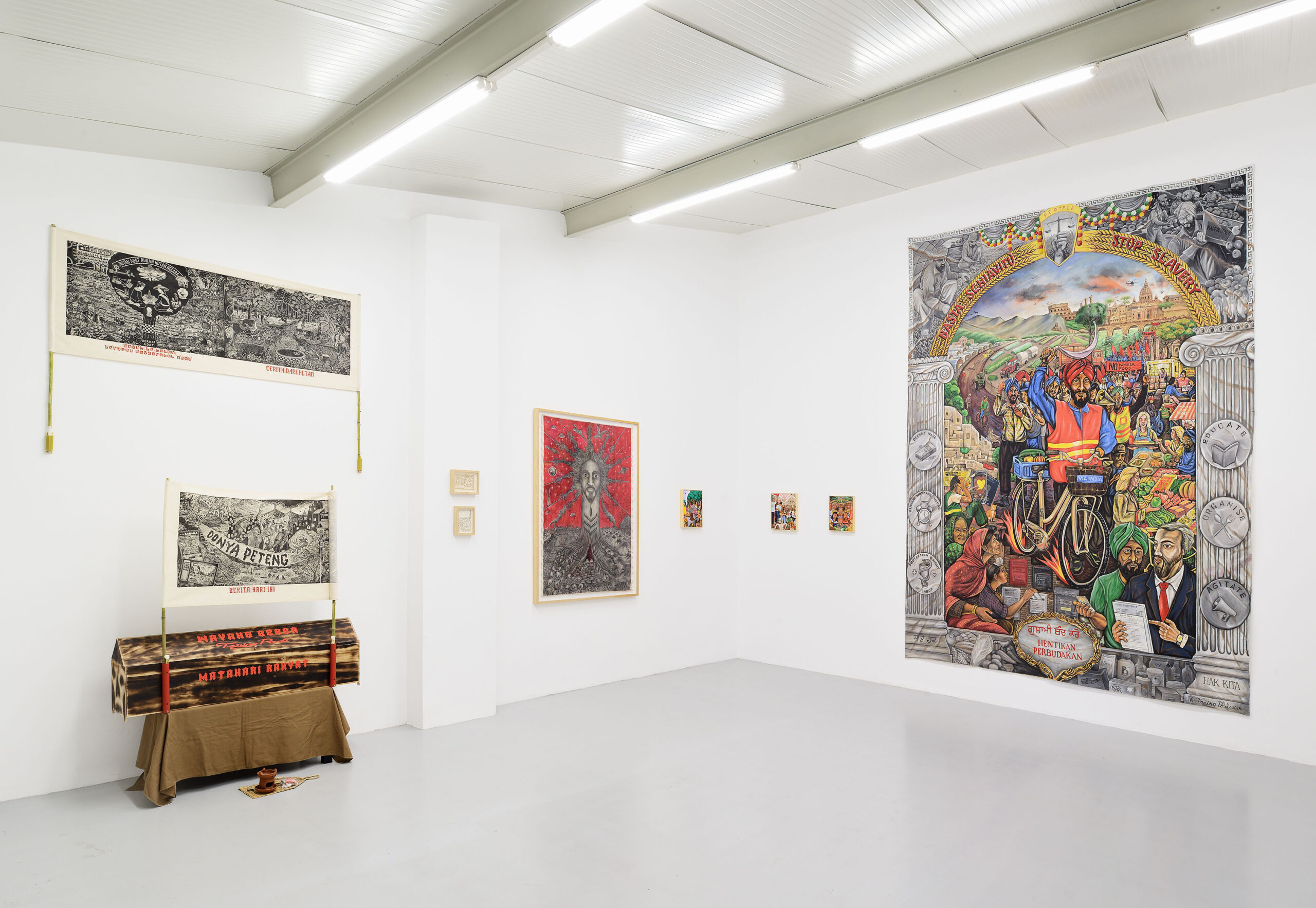
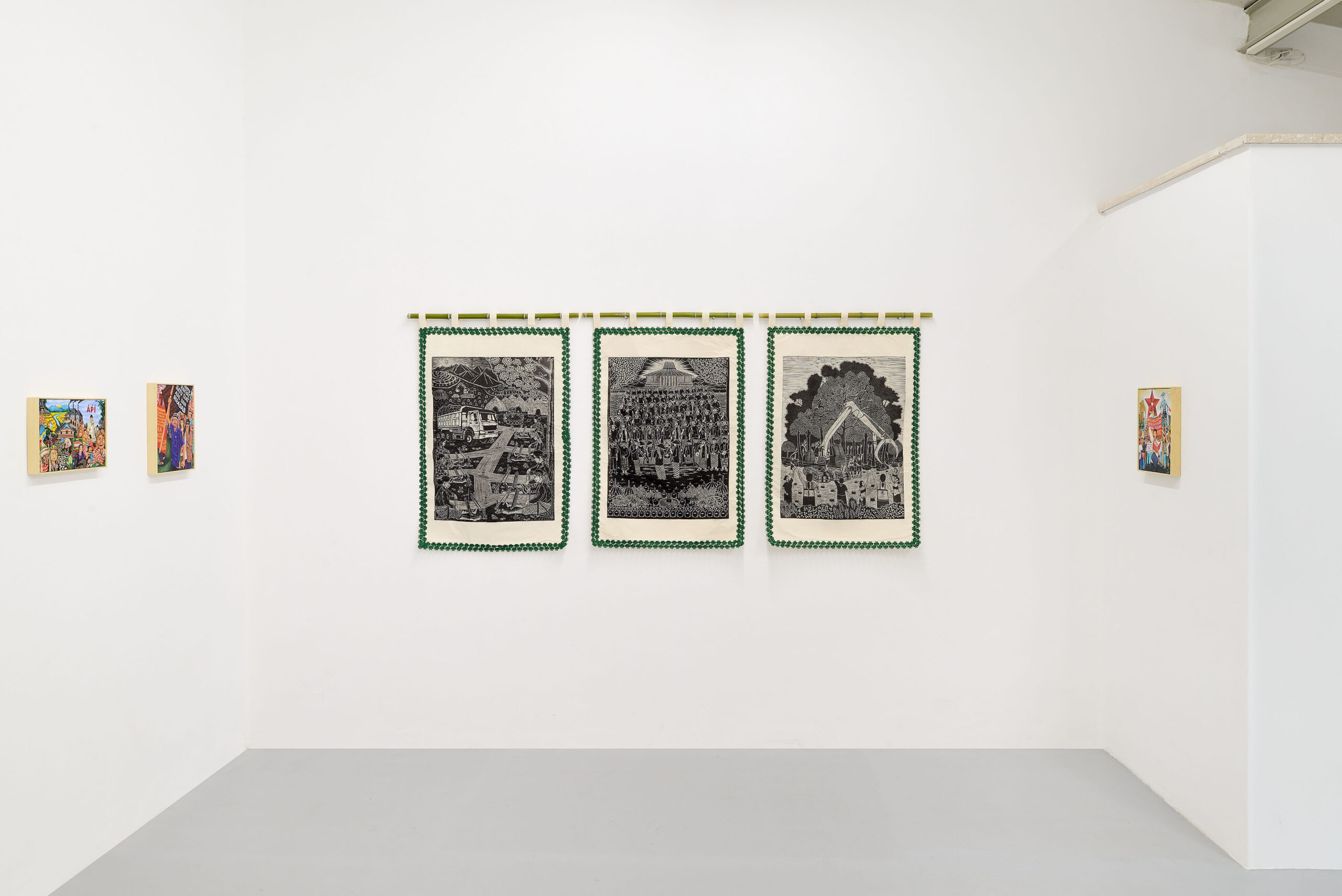
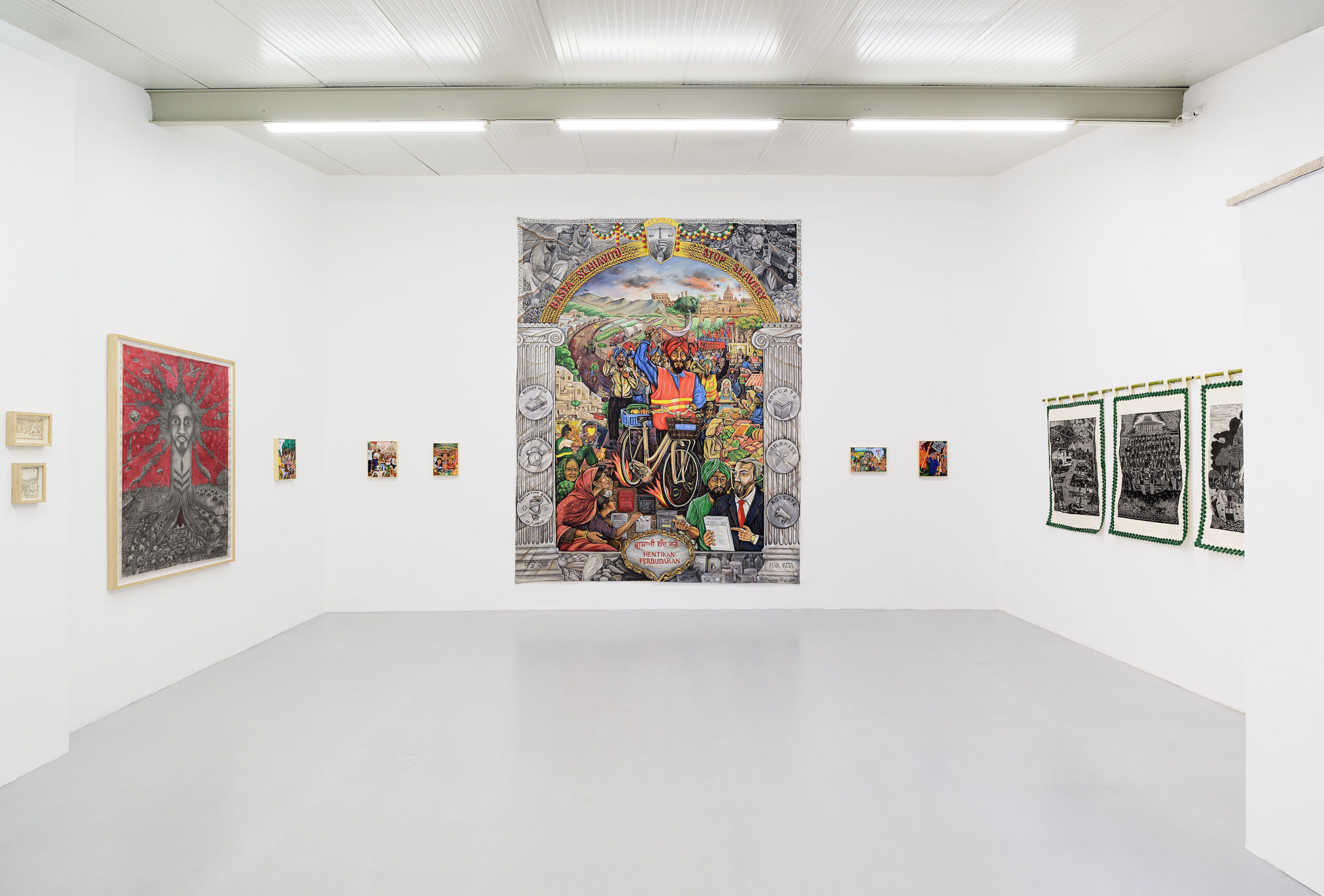
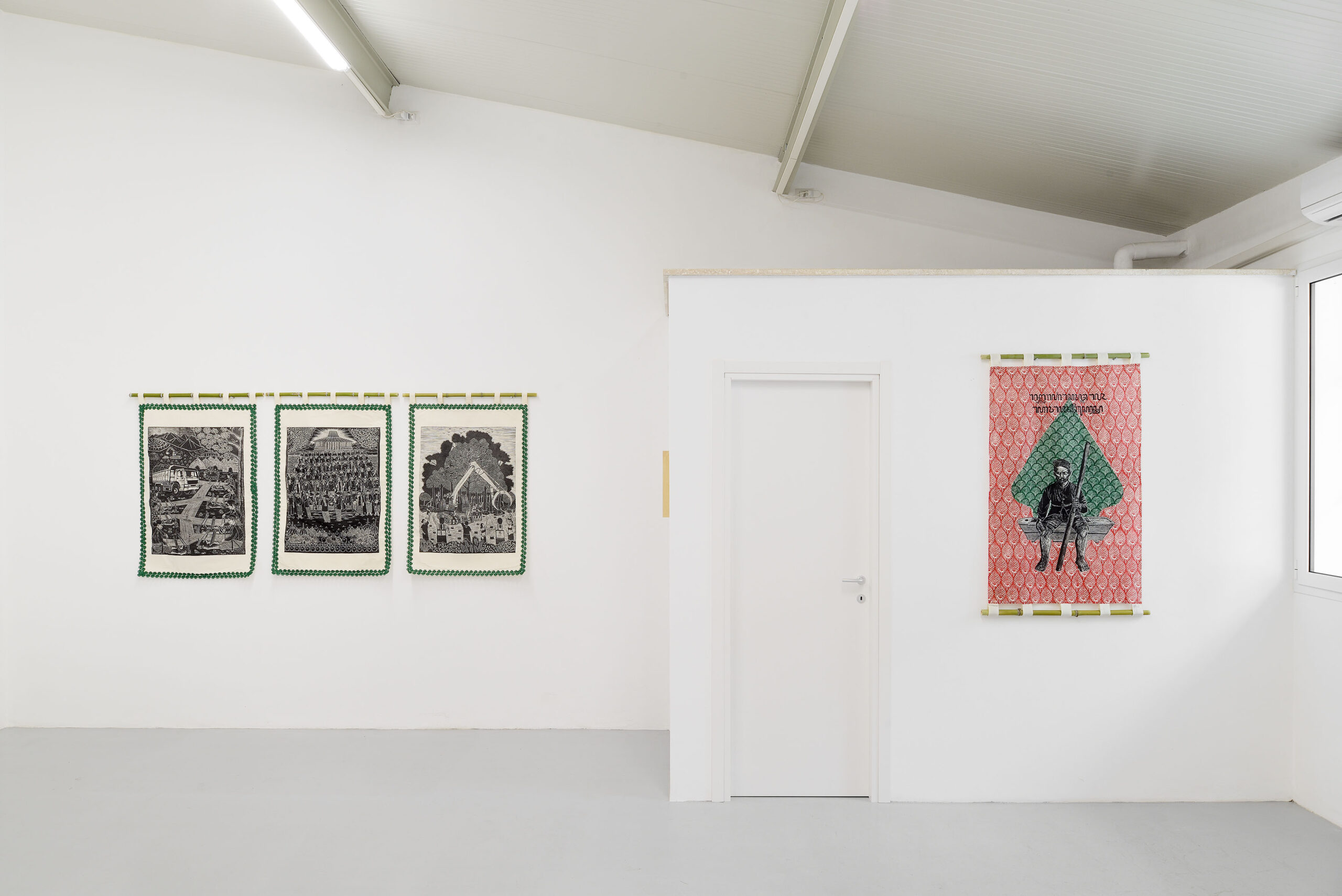
On October 1st 2025, Cantadora, a new contemporary art gallery in Rome, opened its doors. The project was born from the collaboration between gallerist Enrico Palmieri and curator Flavia Prestininzi, and will launch with a solo show by the Indonesian collective Taring Padi.
The exhibition Organise, Educate and Agitate! intertwines participatory practices, local communities and political activism, marking the gallery’s desire to become a place of cultural resistance and storytelling about the urgencies of the present.
TARING PADI IN ROME
With a deeply political and community-based approach, Taring Padi develops participatory art projects that transform art into a tool for protest, solidarity and social activism. Their intervention in Rome is rooted in the three founding principles of the collective that give the exhibition its title — Organise, Educate and Agitate — and takes shape through a residency that took place in September, intertwining collaborative practices with the local area and its communities.
The collective’s creative process is inspired by the lumbung methodology, a practice of sharing resources, time and knowledge, already central to the documenta 15 experience, in which the collective participated.
October 1st at Cantadora, the artists — who will have temporarily relocated to Rome — present a large banner created in their distinctive visual language. This new work is dedicated to the stories of Sikh men and women from Punjab who live and work in the agricultural areas surrounding Rome. This community, one of the largest migrant labour forces in the region, is exploited by the agromafia systems that dominate Italy’s coastal countryside, often forced into conditions of modern slavery and subjugation by landowners.
A selection of individual works from the members’ archives are part of the show, offering an insight into the personal practices that coexist and intersect within the collective experience of Taring Padi.
The artists Fitriani Dwi Kurniasih, Dudi Irwandi, Mohamad Yusuf, Hestu Nugroho, Dhomas Yoedistiro Sugianto, Sri Maryanto, inhabited the gallery space and the city, establishing relationships and alliances with local entities, as is typical of their artistic and political practice. Specifically, with the mediation of gallery owners, a process led to engage with the Indian community originating from the Punjab region and of the Sikh religion, which has long been living in the agricultural cultivation and harvesting areas surrounding the city of Rome, and which for years has been embroiled in policies of illegal exploitation of manual labour. This problem, which is present in many other coastal areas, especially in the south, is referred to as the agro-mafia, and involves various migrant communities living in Italy.
The artists held workshops, culminating in the creation of a large banner dedicated to them, which will be on display in the gallery until December 2025.
For the opening night, Taring Padi activated the installation of the ‘Wayang Beber’, which is part of the exhibition. In Javanese, the term ‘Wayang’ refers to shadow theatre, one of the oldest forms of epic storytelling within the Indonesian tradition, which, in this case, will be presented in the form of woodcuts prints, containing the story of the collective’s thirty-year history. The performance, in Indonesian, led by one of the members of Taring Padi (the ‘dalang’), was accompanied by a translation in Italian for the audience.
THE GALLERY
Cantadora is a Castilian word that means “storyteller” — one voice among many — but it also evokes a precise and legendary figure: Candida Mara, the Sardinian cantadora who lived between the 19th and 20th centuries, and who, through her voice, became a vessel of collective memory. The gallery positions itself as a space dedicated to telling the stories of others, to safeguarding and amplifying them. Cantadora is therefore a place of listening, one that collects and returns narratives through the works of the invited and represented artists.
“For us”, say the two co-founders, “it will be an exciting challenge to remain faithful to the principles of care we set out in this initial phase. Our work will be dedicated to making possible the existence of artworks that become stories — stories that, uncensored and unrestricted, act as tools of resistance.” Flavia Prestininzi’s deep interest in the dialogue between art, ecologies, and the contemporary political urgencies, intersects with Enrico Palmieri’s long-standing experience in the gallery world, giving life to Cantadora: a project that stands out for its consistency, vision, and its ability to articulate a curatorial discourse rooted in the waves of the present. As Flavia and Enrico explain: “The gallery was created with the intent to present and represent artists who share our ethics and sensibility — that is, a conscious practice attentive to process, environment, relationships, and the political and social implications of artistic creation, which is increasingly precarious and fragile.” In this sense, the gallery positions itself as a space open to diverse forms of expression, where contemporary and adaptable ideas and strategies can be developed, and where long-term relationships and collaborations can be initiated with artists from different geographies and generations.
Another distinctive element is the gallery’s location within the city of Rome: the surrounding area (at Piazza Galeria 7) is a courtyard inhabited by hybrid presences such as active workshops and disused storefronts, young artists in shared studios, a small food outlet, and a car repair shop. Just behind it, hidden from view, stretches the Appian Way Regional Park (Parco dell’Appia Antica), while the entrance is dominated by the imposing and now silent ruins of the former Socciarelli chemical factory. This three-floor building, constructed between the 19th and 20th centuries as a leather drying and tanning facility, now stands as a fascinating example of industrial archaeology — a tangible memory of a productive past that resurfaces through the cracks of our present.


